Saint of the Day – 6 December – St Nicholas (270-343) Confessor, Bishop, Miracle-Worker, Apostle of Charity. Also known as – • Nicholas of Bari• Nicholas of Lpnenskij • Nicholas of Lipno • Nicholas of Sarajskij • Nicholas the Miracle Worker • Klaus, Mikulas, Nikolai, Nicolaas, Nicolas, Niklaas, Niklas. Nikolaus, Santa Claus. 
Patronages -• against fire • against imprisonment • against robberies • against robbers • against storms at sea • against sterility • against thefts • altar servers • archers • boys • brides • captives • children • choir boys • happy marriages • lawsuits lost unjustly • lovers • maidens • penitent murderers • newlyweds • paupers • pilgrims • poor people • prisoners • scholars • schoolchildren, students • penitent thieves • travellers • unmarried girls • apothecaries • bakers • bankers • barrel makers • boatmen • boot blacks • brewers • butchers • button makers • candle makers • chair makers • cloth shearers • coopers • dock workers • educators • farm workers, farmers • firefighters • fish mongers • fishermen • grain merchants • grocers • grooms • hoteliers • innkeepers • judges • lace merchants • lawyers • linen merchants • longshoremen • mariners • merchants • millers • notaries • parish clerks • pawnbrokers • perfumeries • perfumers • poets • ribbon weavers • sailors • ship owners • shoe shiners • soldiers • spice merchants • spinners • stone masons • tape weavers • toy makers • vintners • watermen • weavers • Greek Catholic Church in America • Greek Catholic Union • Varangian Guard • Germany • Greece • Russia • 3 Diocese • 78 Cities.
Attributes – • anchor • bishop calming a storm • bishop holding three bags of gold • bishop holding three balls • bishop with three children • bishop with three children in a tub at his feet • purse • ship • three bags of gold • three balls • three golden balls on a book • boy in a boat. Saint Nicholas’ reputation evolved among the faithful, as was common for early Christian saints and his legendary habit of secret gift-giving gave rise to the traditional model of Santa Claus through Sinterklaas. St Nicholas was generous to the poor and special protector of the innocent and wronged. Many stories grew up around him prior to his becoming associated with Santa Claus.
Some examples of the Miracles of St Nicholas and the reasons for various Patronages:
• Upon hearing that a local man had fallen on such hard times that he was planning to sell his daughters into prostitution, Nicholas went by night to the house and threw three bags of gold in through the window, saving the girls from an evil life. These three bags, gold generously given in time of trouble, became the three golden balls that indicate a pawn broker’s shop.
• He raised to life three young boys who had been murdered and pickled in a barrel of brine to hide the crime. These stories led to his patronage of children in general and of barrel-makers besides.
• Induced some thieves to return their plunder. This explains his protection against theft and robbery and his patronage of them – he’s not helping them steal but to repent and change. In the past, thieves have been known as Saint Nicholas’ clerks or Knights of Saint Nicholas.
• During a voyage to the Holy Lands, a fierce storm blew up, threatening the ship. He prayed about it and the storm calmed – hence the patronage of sailors and those like dockworkers who work on the sea.
St Nicholas died in 346 at Myra, Lycia (in modern Turkey) of natural causes and his relics are believed to be at Bari, Italy.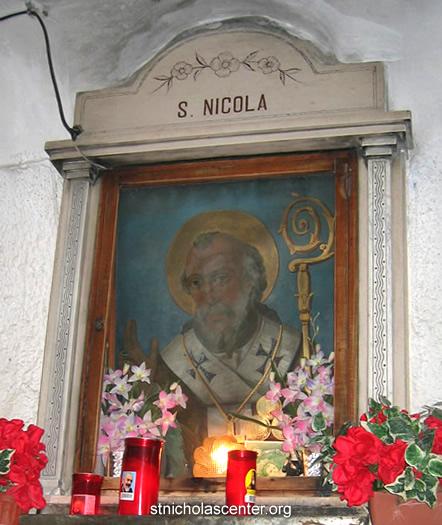
Here is the story of St Nicholas by Prosper Dom Gueranger:
Nicholas was born in the celebrated city of Patara, in the province of Lycia. His birth was the fruit of his parents’ prayers. Evidences of his great future holiness were given from his very cradle. For when he was an infant, he would only take his food once on Wednesdays and Fridays and then not till evening but on all other days he frequently took the breast: he kept up this custom of fasting during the rest of his life.
Having lost his parents when he was a boy, he gave all his goods to the poor. Of his Christian kindheartedness there is the following noble example. One of his fellow-citizens had three daughters but being too poor to obtain them an honourable marriage, he was minded to abandon them to a life of prostitution. Nicholas having learned of the case, went to the house during the night and threw in by the window a sum of money sufficient for the dower of one of the daughters; he did the same a second and a third time and thus the three were married to respectable men.
Having given himself wholly to the service of God, he set out for Palestine, that he might visit and venerate the holy places. During this pilgrimage, which he made by sea, he foretold to the mariners, on embarking, though the heavens were then serene and the sea tranquil, that they would be overtaken by a frightful storm. In a very short time, the storm arose. All were in the most imminent danger, when he quelled it by his prayers.
His pilgrimage ended, he returned home, giving to all men example of the greatest sanctity. He went, by an inspiration from God, to Myra, the Metropolis of Lycia,which had just lost its Bishop by death and the Bishops of the province had come together for the purpose of electing a successor. Whilst they were holding council for the election, they were told by a revelation from heaven, that they should choose him who, on the morrow, should be the first to enter the church, his name being Nicholas. Accordingly, the requisite observations were made, when they found Nicholas to be waiting at the church door: they took him and, to the incredible delight of all, made him the Bishop of Myra.
During his episcopate, he never flagged in the virtues looked for in a bishop; chastity, which indeed he had always preserved, gravity, assiduity in prayer, watchings, abstinence, generosity and hospitality, meekness in exhortation, severity in reproving. He befriended widows and orphans by money, by advice and by every service in his power. So zealous a defender was he of all who suffered oppression, that, on one occasion, three Tribunes having been condemned by the Emperor Constantine, who had been deceived by calumny and having heard of the miracles wrought by Nicholas, they recommended themselves to his prayers, though he was living at a very great distance from that place: the saint appeared to Constantine and angrily looking upon him, obtained from the terrified Emperor their deliverance.
Having, contrary to the edict of Dioclesian and Maximian, preached in Myra the truth of the Christian faith, he was taken up by the servants of the two Emperors. He was taken off to a great distance and thrown into prison, where he remained until Constantine, having become Emperor, ordered his rescue and the Saint returned to Myra. Shortly afterwards, he repaired to the Council which was being held at Nicaea: there he took part with the three hundred and eighteen Fathers in condemning the Arian heresy (Tradition has it that he became so angry with the heretic Arius during the Council that he struck him in the face).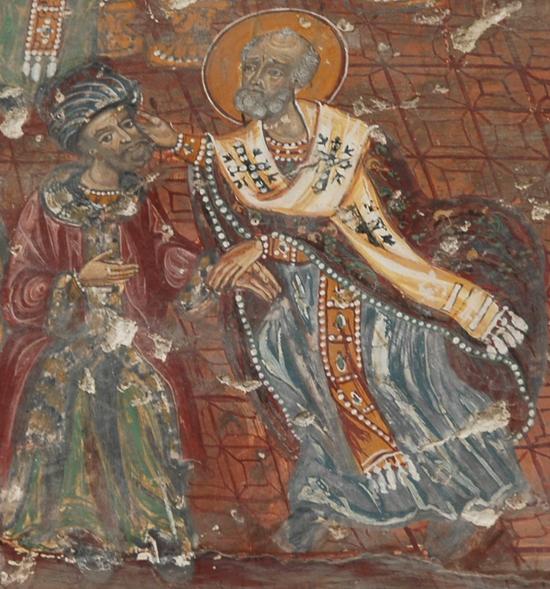
Scarcely had he returned to his See than he was taken with the sickness of which he soon died. Looking up to heaven and seeing Angels coming to meet him, he began the Psalm, In thee, O Lord, have I hoped and having come to those words, Into your hands I commend my spirit, his soul took its flight to the heavenly country. His body, having been translated to Bari in Apulia, is the object of universal veneration.


For St Nicholas traditional biscuits see here: https://anastpaul.wordpress.com/2016/12/06/st-nicholas-6-december/






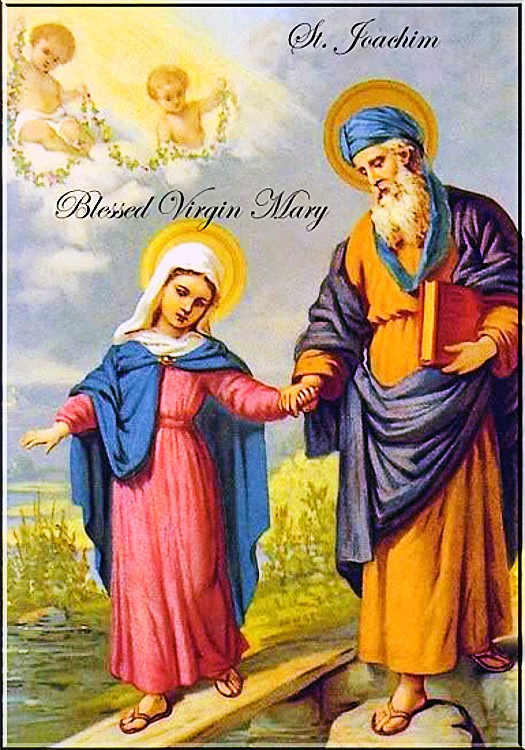




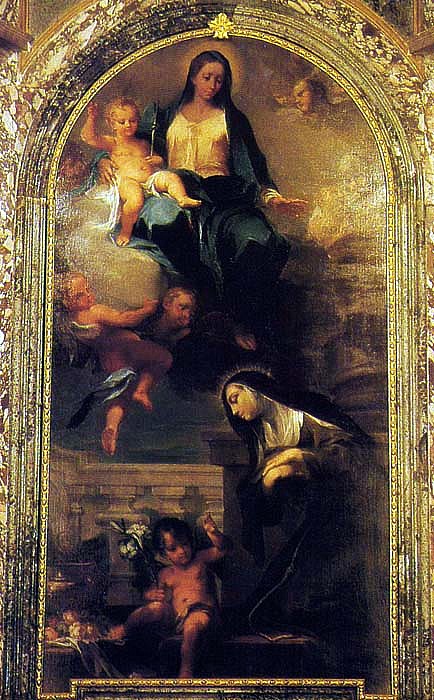



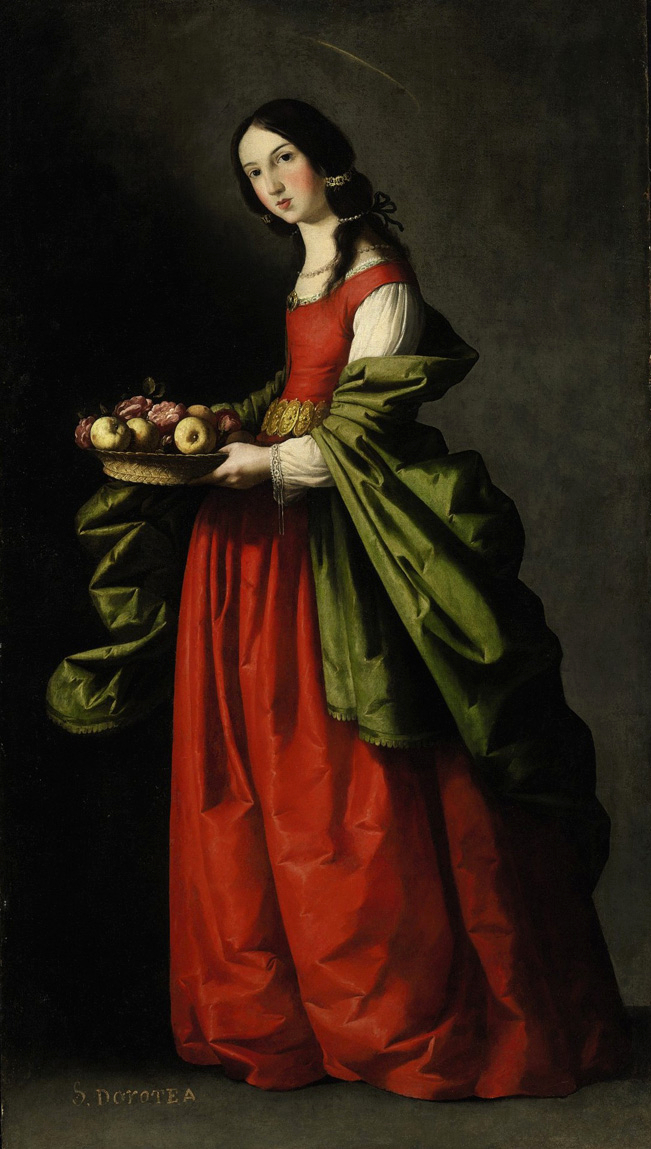

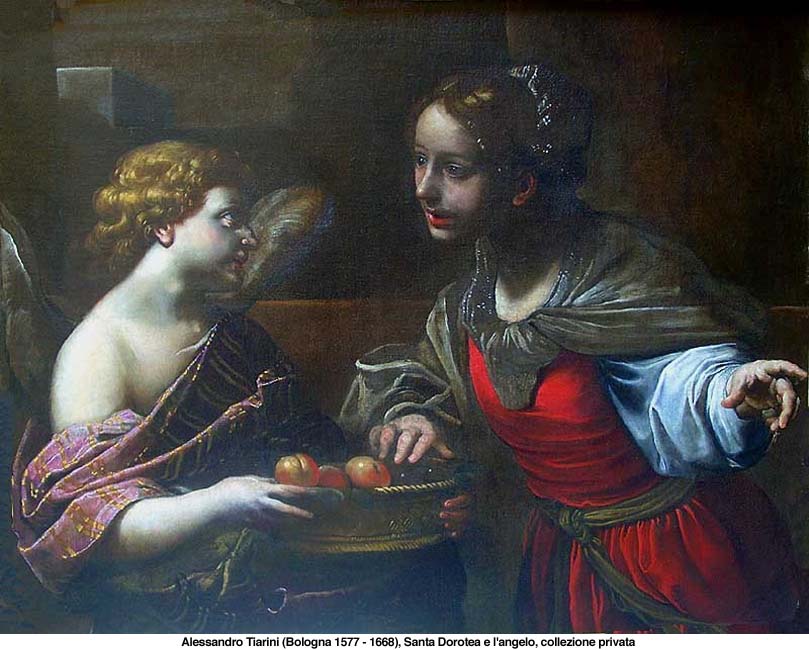




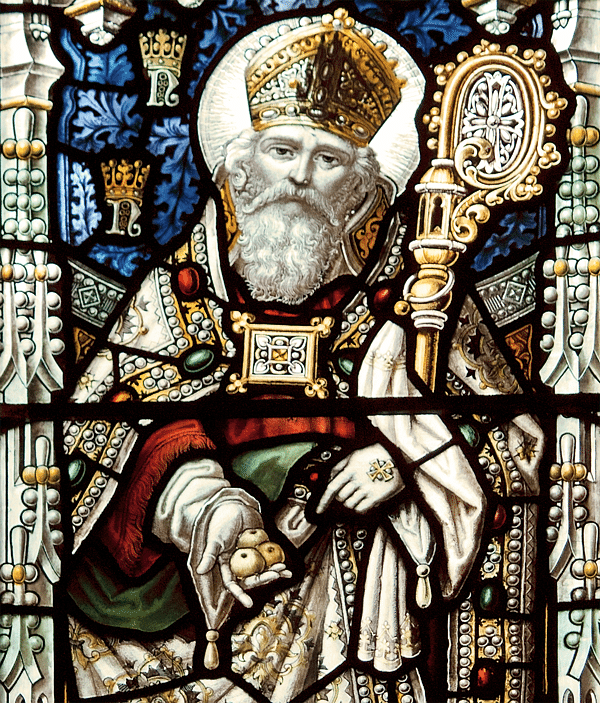






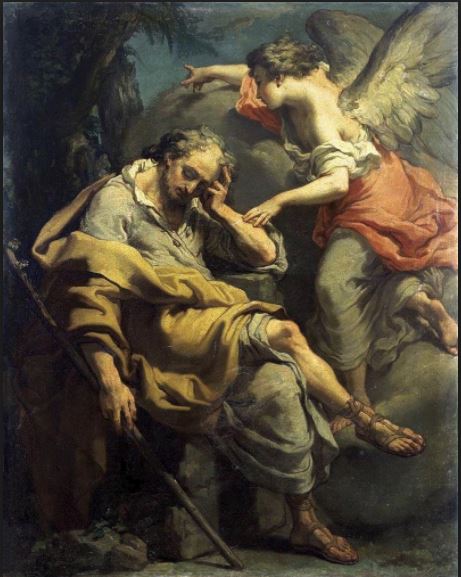
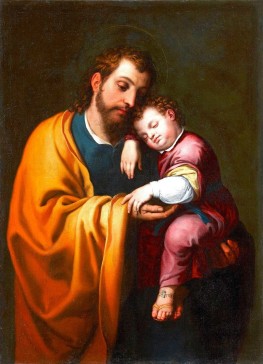




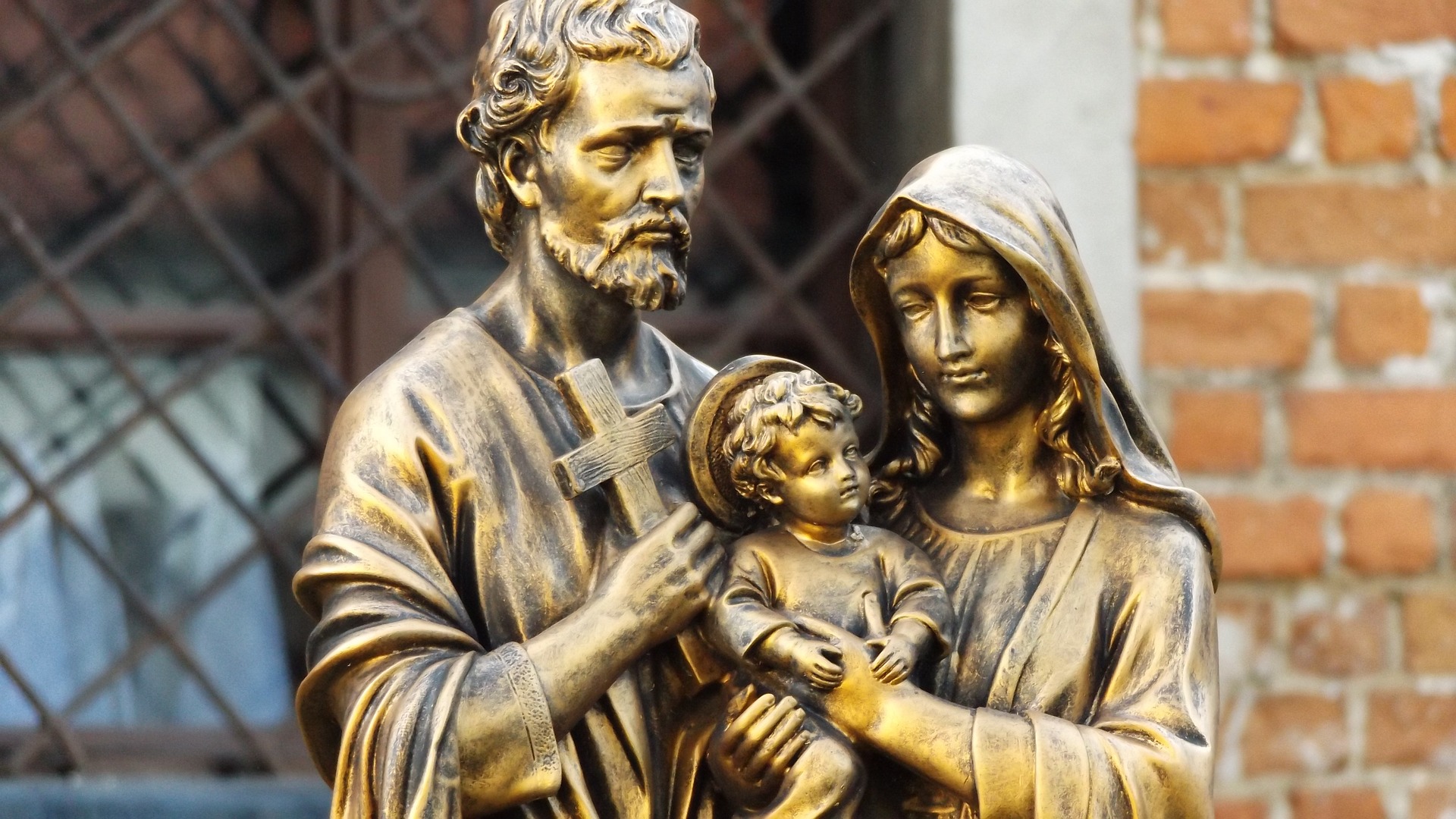




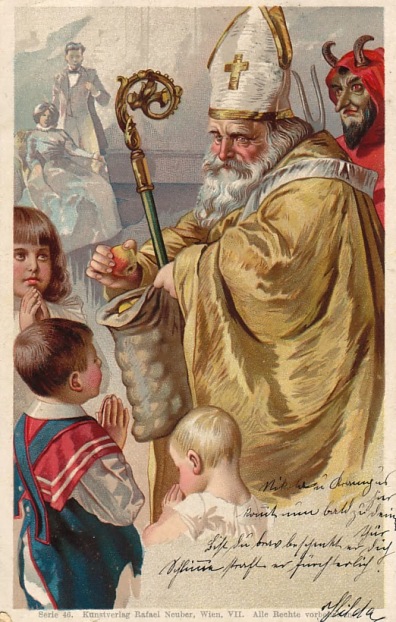




You must be logged in to post a comment.